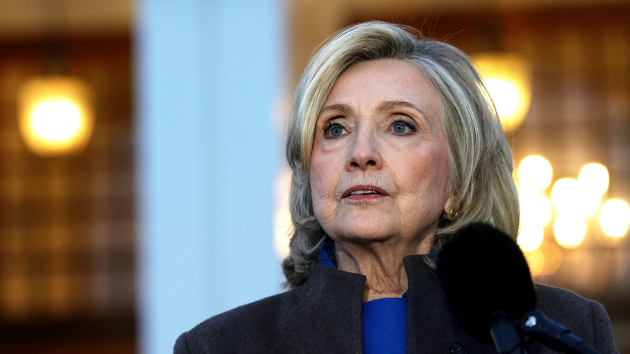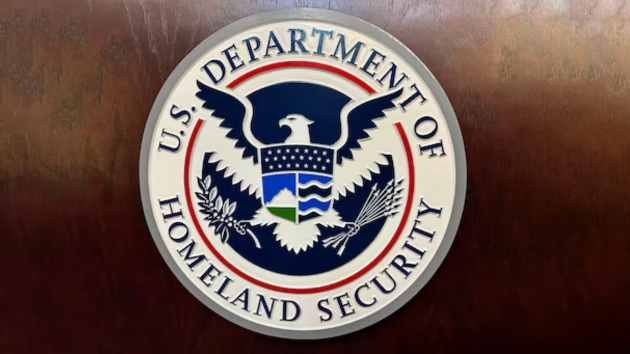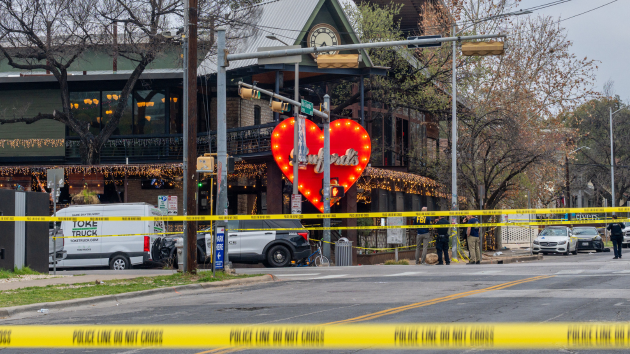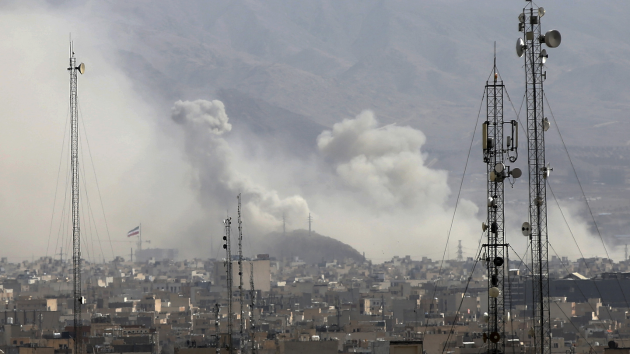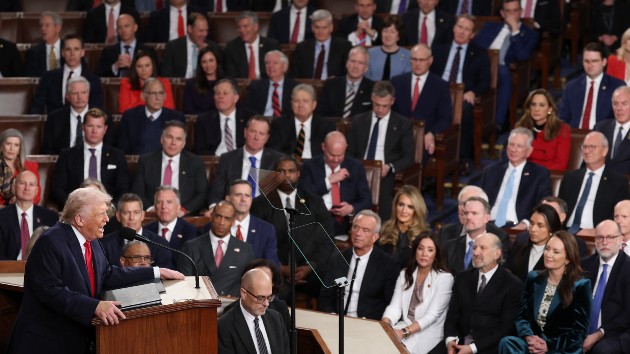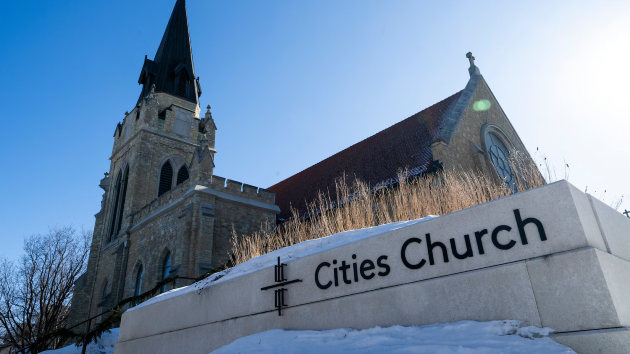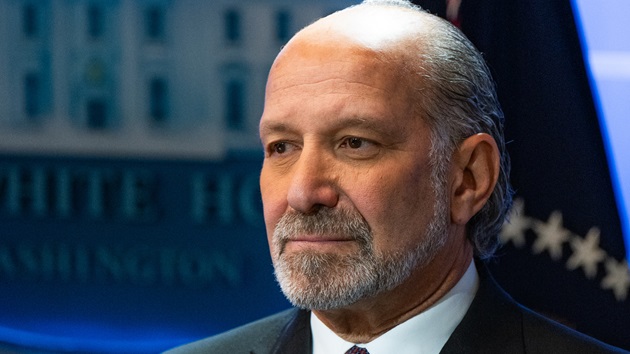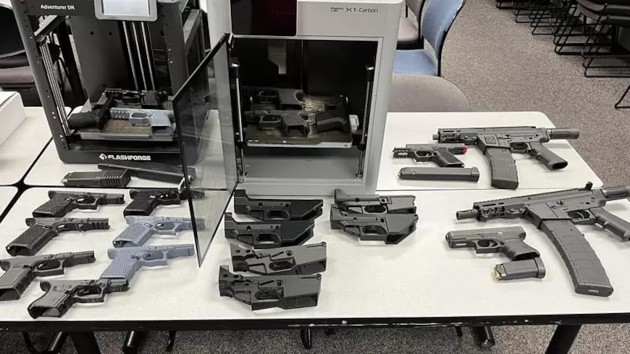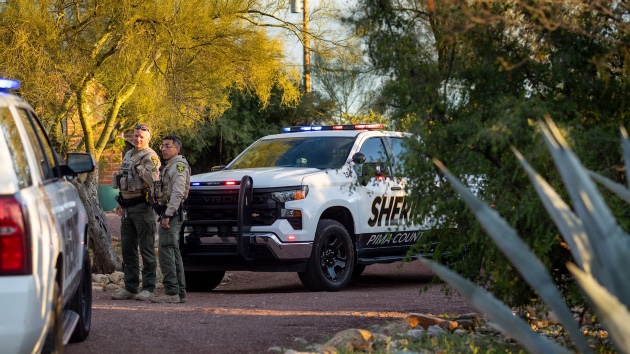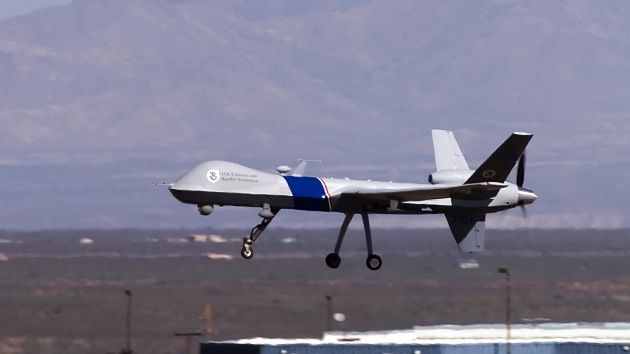
(NEW YORK) — The Columbia University student who was detained in Vermont by Immigration and Customs Enforcement told ABC News that he was about to sign a document saying he was willing to take the Pledge of Allegiance, one of the final steps in the process to become a U.S. citizen, when masked agents suddenly arrested him.
In an interview nearly a week after a federal judge ordered him released from detention while his case proceeds, Mohsen Mahdawi recounted his arrest and detainment, saying that he feared his citizenship interview was a “trap” and that he’s concerned that democracy in the U.S. is under attack.
“It was a moment of like, should I be happy or should I be cautious when I received the notice?” Mahdawi told ABC News about receiving the notice for his citizenship interview. “And I sense that this might be a trap. And for sure, indeed, it was an alarm bell where I directly reached out to my legal team in order to navigate, you know, the pros and cons and this risk that I think that I may lose my freedom.”
Mahdawi said that, as he was completing his interview, “at that moment, [I had] very strong feelings of, ‘Oh my god, things are working out. And then they came into the office … and you can imagine the feeling between, I am being excited to receive the citizenship, and then feeling of betraying disappointment.”
A Department of Homeland Security official pushed back on concerns that the interview may have been a trap staged to detain Mahdawi.
“The Department does not ‘stage’ interviews or any other type of adjudication,” DHS Assistant Secretary Tricia McLaughlin said in a statement. “If an alien is seeking a benefit, they will almost assuredly be interviewed. If the alien is subject to detention, that alien will almost assuredly be detained. One has no bearing on the other.”
“Illegal aliens do not have a right to roam freely in our country, nor do they have a right to elude federal authorities,” McLaughlin said.
Mahdawi, who co-founded a university organization called the Palestinian Student Union with detained Columbia student Mahmoud Khalil, was born in a refugee camp in the West Bank before moving in 2014 to the U.S. where he has been a legal resident for 10 years.
His lawyers believe that, like Khalil, he is being targeted by the Trump administration under Immigration and Nationality Act section 237(a)(4)(C)(i), which asserts that the secretary of state can deem a person deportable if they have reasonable ground to believe that the person’s presence or activities in the U.S. could have adverse foreign policy consequences.
In response to the government’s allegations against him, Mahdawi and his lawyers have firmly refuted allegations that he ever threatened Israelis or those of the Jewish faith. He told ABC News he has been advocating for peace and protesting against the war in Gaza.
“So for them to accuse me of this is not going to work, because I am a person who actually has condemned antisemitism,” Mahdawi said. “And I believe that the fight against antisemitism and the fight to free Palestine go hand in hand, because, as Martin Luther King said, injustice anywhere is a threat to justice everywhere.”
After his arrest at a U.S. Citizenship and Immigration Services office in Vermont, where he was undergoing his citizenship interview, Mahdawi said he was quickly put in handcuffs, but was not given a reason for why he was being detained.
“The first thing they’ve done is they isolated me from my lawyer, separated me from my lawyer,” Mahdawi said of his arrest. “They did not show us any paperwork they had on them. I told them, ‘I am a peaceful man and I will collaborate.'”
Mahdawi claims ICE officials were planning to send him to Louisiana where Khalil is detained, but missed the flight by a few minutes. His lawyers, who crafted several habeas petitions in anticipation that he could be detained, filed an emergency request for a temporary restraining order, which a federal judge granted.
“They were preparing to send me to Louisiana,” Mahdawi said. “They had my flight tickets really printed, and two agents came to take me … to ship me on a commercial flight from Burlington Airport to New York and from New York to Louisiana.”
At his bail hearing last week, the Department of Justice argued against Mahdawi’s release, saying that during a 2015 FBI investigation, a gun shop owner alleged that Mahdawi had claimed to have built machine guns in the West Bank to kill Jews, proving that he was a threat. According to a police report obtained by ABC News from Windsor Police in Vermont, a “concerned citizen” alleged that Mahdawi “seemed to have knowledge about gun design and function.”
But that investigation was closed and Mahdawi was never charged with any crime, a point that Judge Geoffrey Crawford highlighted when he ordered Mahdawi’s release last week.
During the hearing, the federal judge said that while the allegations were “shocking,” he noted that because the FBI at the time decided to close the case, he understood that to mean that the FBI came to the conclusion that the allegations made by the gun shop owner and the other individual were unfounded claims.
Judge Crawford noted during last week’s hearing that Mahdawi had received letters of support from over 90 community members, including from members of the Jewish community, adding that “people who have in a consistent pattern described him as peaceful.”
The judge also said Mahdawi had “made substantial claims that his detention was in retaliation for his protected speech.”
Mahdawi told ABC News that his Buddhist faith has kept him grounded as his immigration and federal cases continue to play out in court and the threat of deportation still lingers.
He said he believes “everybody should be alert and alarmed” that the Trump administration targeted him for his advocacy.
“We are at a very critical time,” Mahdawi said. “What is happening in America is going to affect the rest of the world. The attack on democracy that guarantees many rights for people, democracy that has established international order and human rights, is a very dangerous phenomenon.”
During the interview, Mahdawi said he first experienced true freedom when he moved to the United States — a feeling he claims to still have despite his legal battle.
“They can put me in prison, but my spirit is free, and the free spirit is a spirit that does not give up on the idea of justice,” he said. “The free spirit is a spirit that empathizes with everyone, including its oppressor, so I do feel free.”
Copyright © 2025, ABC Audio. All rights reserved.
- Video of Clintons’ depositions in House Epstein probe is released - March 2, 2026
- Your Daily Briefing – March 2, 2026 - March 2, 2026
- Department of Homeland Security warns of potential attacks amid Iran operation - March 2, 2026

